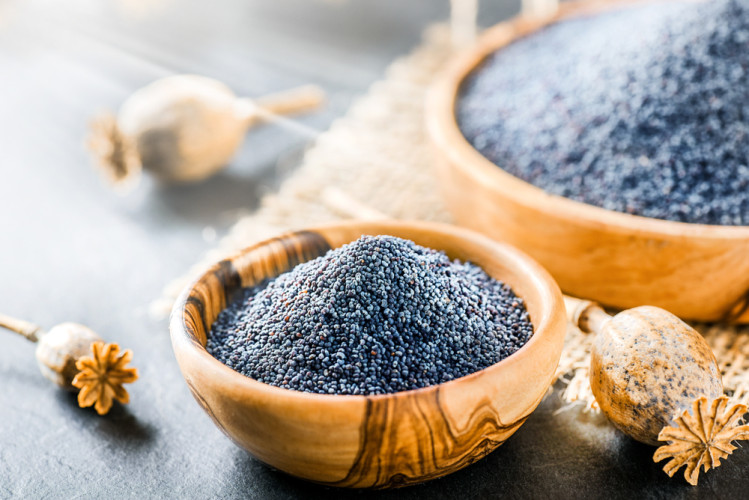News
01.02.2019 - Foods

Opium Alkaloid Thebaine in Poppy Seeds
On December 7, 2018, the BfR (Federal Institute for Risk Assessment) released an assessment on the evaluation of opium alkaloids in poppy seeds, in which the health risk of thebaine in culinary poppy seeds and in foods containing poppy seeds is provisionally assessed.
Thebaine is an opium alkaloid found in the latex of the opium poppy plant. Like other opium alkaloids such as morphine, narcein, or codeine, it is produced in the capsule as well as in the stems and leaves of the plant. The mature seeds of the opium poppy, which are used as food, naturally do not contain opium alkaloids. However, during mechanical harvesting, poppy seeds can come into contact with the alkaloid-containing latex. Culinary poppy seeds can therefore be contaminated with significant amounts of thebaine and other opium alkaloids.
There is little toxicological knowledge about thebaine so far, and there is also little information on the consumption of poppy seeds in Germany.
For the provisional assessment of thebaine, the BfR used content data from food monitoring on opiates (especially thebaine) in poppy seeds measured in 2017 and 2018, and used the so-called TTC concept (Threshold of Toxicological Concern). In this process, substances are classified into a corresponding substance class based on their chemical structure. Based on toxicological data on structurally related compounds, maximum intake amounts are determined for each of these substance classes (TTC values). When applying the TTC concept, it should be noted that exceeding the TTC value does not yet allow precise conclusions about the actual risk. If the TTC value is exceeded, it means that toxicological data are required to assess the actual risk.
In the BfR's calculations of the substance's intake, the TTC values for thebaine were mostly exceeded.
The BfR therefore advises lowering the content of all opium alkaloids, including thebaine, in poppy seeds for food production as much as technically possible and refraining from excessive consumption of foods with high poppy seed content. Larger amounts of poppy seeds can be found primarily in poppy cakes, poppy seed desserts such as poppy pies, and pasta dishes sprinkled with poppy seeds such as steamed dumplings. In 2018, the EFSA (European Food Safety Authority) derived an acute reference dose (ARfD) of 10 µg morphine equivalents per kg body weight (BW) as a group ARfD for morphine and codeine.
Furthermore, the BfR calls for filling the existing gaps concerning the consumption of poppy seeds in Germany and the toxic properties of thebaine to perform a comprehensive assessment of potential health risks.
In our Tentamus laboratories, we conduct analyses for the opium alkaloids morphine and codeine contained in poppy seeds. We provide quick and reliable results.
If you have any questions, our customer service representatives are gladly at your disposal.
Source: Federal Institute for Risk Assessment, www.bfr.bund.de
